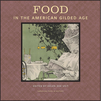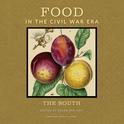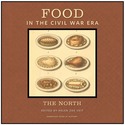|
Today, most Americans assume that children are naturally picky eaters. Who can blame them? Picky eaters are everywhere. Yet, amazingly, they used to be almost nonexistent. In fact, well into the 20th century, Americans thought of children as joyous, omnivorous eaters who were naturally curious and eager to eat.
|

This doesn't make sense to us. A lot of us were picky children ourselves, or we're raising children who seem biologically picky despite everything we've done to nudge them towards new foods. Don't children have special taste buds? Aren't they naturally sensitive to food's color and texture? We've heard that children are incapable of liking spicy foods and leafy greens, and that parents can damage children psychologically by urging them to eat. But in the past, Americans didn't think any of those things. Instead, they assumed children could like the same foods as adults and children almost always did like the same foods as adults. So what happened? Picky tells the fascinating story of how picky eating came to define "children's food" and reshape American diets at large. Maybe most importantly, it explains how we can use the tools that parents used in the past to directly combat the causes of pickiness today.







